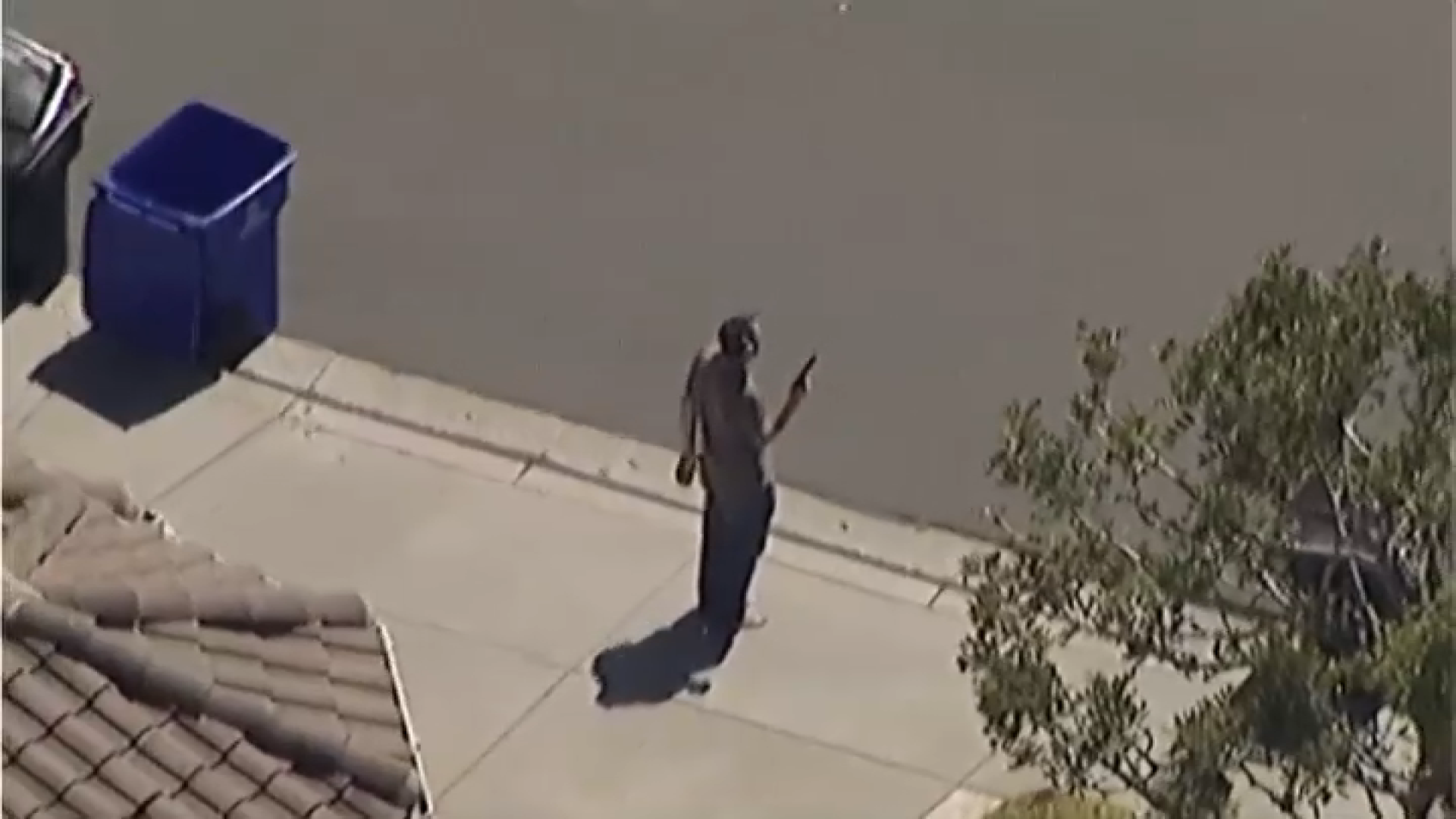Questions have been raised about the COVID-19 mitigation measures at the Otay Mesa Detention Facility. NBC 7’s Tania Luviano reports.
An immigrant detainee at the Otay Mesa Detention Center is alleging that the Department of Homeland Security (DHS) and U.S. Immigration and Customs Enforcement (ICE) are failing to protect detainees from an "uncontrollable outbreak" of COVID-19 inside the facility.
Gloria Esperanza Avelar Martinez, a 46-year-old Guatemalan woman who was detained by ICE in Otay Mesa on Feb. 11, filed a petition to San Diego's U.S. District Court on Thursday. Martinez is one of several detainees to claim that government agencies and private prison operator Core Civic were negligent in their response to the novel coronavirus.
She is petitioning for her release to her sponsor in Crestline, California after a wave of COVID-19 cases swept through the detention facility. Martinez was one of those to catch the virus.
As reported by NBC 7, detainees and civil rights groups including the ACLU have demanded the release of all migrants inside the Otay Mesa facility, alleging that detainees were not adequately protected from contracting the disease.
In early May, a federal judge ordered the release of at least 72 detainees as a result of a class-action lawsuit that sought the release of all detainees at the facility over the age of 45 and those with underlying medical conditions.
ICE said they have released over 90 individuals that fall in the "medical risk" category. There are more than 1,000 immigrants detained at the Otay Mesa Detention Center, according to ICE.
The most recent lawsuit said that the Otay Mesa facility was so tightly packed amid the pandemic that it was "ripe for the fast spread of the disease."
Local
It claims that it was the government's inaction and the conditions at the Otay Mesa Detention Center that led Martinez and more than 160 other detainees to contract COVID-19. Migrants inside the facility claim the number infected could be much higher than what ICE is reporting.
ICE declined to respond to the pending lawsuit.
According to the enforcement agency, 11 staff members at the facility have also tested positive for the disease as of June 18.
Detainees sleep in dormitories with six beds, they're grouped together into "cohorts" with similar conditions -- even if they haven't yet tested positive -- and they lack personal protective equipment and sanitization materials, according to the lawsuit.
The lawsuit also alleges that several detainees have claimed enforcement officers coerced them into signing a document, in English only, releasing the facility from liability relating to COVID-19 in exchange for a face mask. Some detainees who refused to sign the wavier were taken away, while others were threatened with pepper spray, according to the suit.
"The only viable method for combating COVID-19 at Otay Mesa is a significant reduction of its detainee population," the lawsuit said, noting that Otay Mesa's failure to release detainees is "anomaly when compared to the massive release of jail and prison inmates throughout the country."
ICE says on their website that "comprehensive protocols are in place" at Otay Mesa, including providing PPE and testing for those who meet Centers for Disease Control criteria.
According to the agency's website, detainees exhibiting symptoms are housed "in a single medical housing room," while those at risk of exposure are housed in another room. Those with moderate to severe symptoms are transported to hospitals.
Shower and hand soap are provided and hand sanitizer is presented to "staff and detainees in the secure setting whenever possible."
Doctors have written an open letter to ICE urging them to release detainees due to the fear of large-scale transmission at detention centers. By mid-May, ICE had reported that half of the detainees at facilities across the country had tested positive for COVID-19.
Carlos Escobar-Mejia, a 57-year-old man, became the first immigrant detainee to die of COVID-19. He was being housed at the Otay Mesa Detention Center.
Around the same time as his death, Martinez was tested for COVID-19 and was confirmed positive. She said she first experienced symptoms more than a month before her diagnosis. Throughout the month of April, she sought medical care; meanwhile, she was kept in a unit with 40 other women, the lawsuit alleges.
In just four days, the number of detainees testing positive for the disease soared from 18 to 111, an increase of 517%, the lawsuit said.
"Otay Mesa has become a COVID-19 hotspot because the government has failed to allow for important preventative measures, namely social distancing, as well as secondary measures like frequent sanitizing of hands and high-touch hard surfaces and proper mask usage by detainees and staff alike," the lawsuit alleges.
"Until [the detainee] is released, she and everyone around her are sitting ducks, hoping not to succumb to COVID-19."
According to the lawsuit, ICE was "woefully late" in responding to the pandemic, releasing their Pandemic Response Requirements on April 13 -- more than a month after California declared a state of emergency and nearly three weeks after the stay-at-home order was issued. And even when the protocols were released, the lawsuit alleges, many are not being implemented.
The detainee, represented by immigration attorney group Al Otro Lado, names Attorney General William Barr, Acting DHS Secretary Chad T. Wolf and San Diego ICE Field Director Gregory Archambeault, among others, in the suit.



